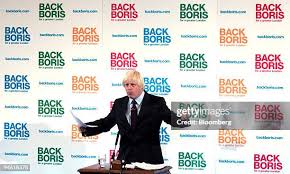The Journey of Boris Johnson in UK Politics

Introduction
Boris Johnson, the former Prime Minister of the United Kingdom, continues to be a pivotal figure in British politics even after stepping down from his position. His tenure was marked by notable achievements and controversies, making his ongoing political journey critical to understanding the current political landscape in the UK. Johnson’s influence extends beyond his premiership, as his decisions and public perception continue to shape the Conservative Party’s future.
Political Career Overview
Boris Johnson became Prime Minister on July 24, 2019, succeeding Theresa May. His leadership coincided with significant national events, most prominently the Brexit negotiations, where he successfully led the UK out of the European Union. His aggressive approach towards securing a favorable exit deal garnered him both support and criticism.
However, his premiership faced immense challenges including the COVID-19 pandemic, which required unprecedented government intervention. The handling of the pandemic, particularly accusations of mismanagement and the so-called ‘Partygate’ scandal, took a toll on his reputation and ultimately led to his resignation as leader of the Conservative Party in September 2022.
Recent Developments
Currently, Boris Johnson remains a Member of Parliament for Uxbridge and South Ruislip. Following his resignation, he has maintained a high public profile, engaging in various speaking engagements and writing a book that reflects on his time in office. Most recently, Johnson has been in the news for his involvement in the Conservative Party’s ongoing leadership issues, citing a potential return to frontline politics.
In July 2023, Johnson faced renewed scrutiny as he appeared before a parliamentary committee regarding the partygate investigation, reflecting the continuing impact of his previous governance on current political affairs. Analysts suggest that while his return to prominence is uncertain, his political legacy will influence the Conservative Party’s strategy in the upcoming 2024 general elections.
Conclusion
Boris Johnson’s role in UK politics remains significant, as his past actions are still under examination and could affect future electoral outcomes. The polarising figure has supporters who credit him with a successful Brexit, while critics point to controversies that marred his leadership. As Johnson continues to navigate his post-premiership career, observers are keenly watching how his influence may resurface in the evolving dynamics within the Conservative Party and the broader UK political arena.









